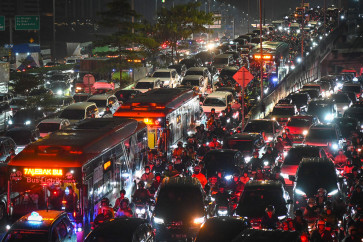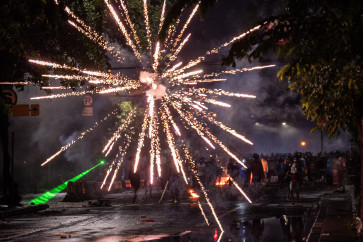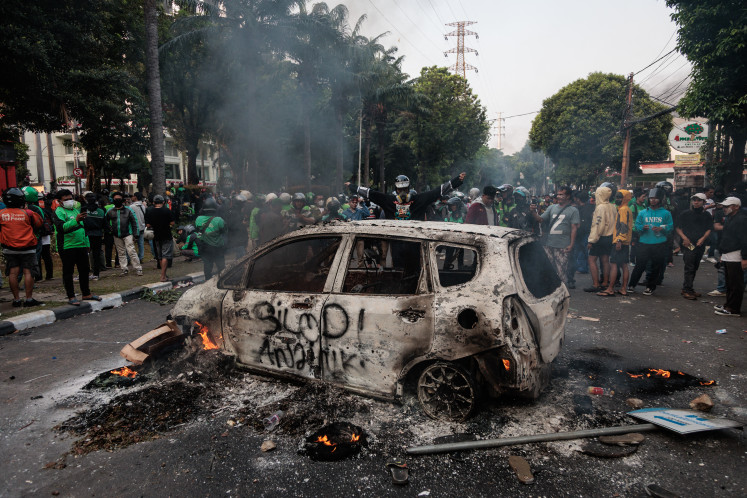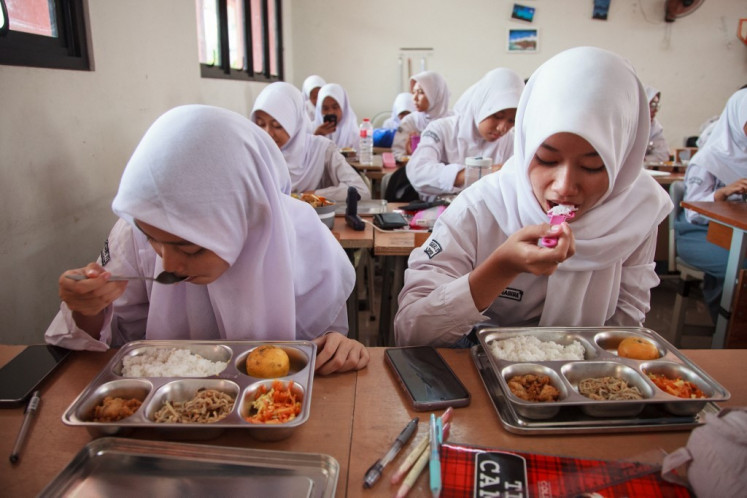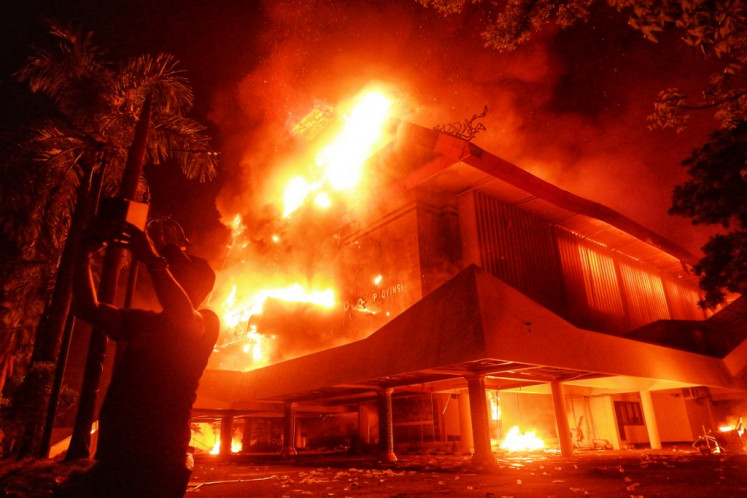Popular Reads
Top Results
Can't find what you're looking for?
View all search resultsPopular Reads
Top Results
Can't find what you're looking for?
View all search resultsIndonesian Muslims by the numbers
Beyond the symbolism: The spires of the Jakarta Cathedral (left) are lit up in front of the Istiqlal Grand Mosque
Change text size
Gift Premium Articles
to Anyone
B
span class="caption" style="width: 398px;">Beyond the symbolism: The spires of the Jakarta Cathedral (left) are lit up in front of the Istiqlal Grand Mosque. JP/R. Berto Wedhatama
As expatriates avoid living near mosques, some Indonesian Muslims also balk at having Westerners in their neighborhood.
A study by the Indonesian Survey Institute (LSI) shows six out of every 10 Indonesian Muslims believed Western culture had a bad influence on local culture.
“Although the study was done in 2006, I believe the numbers haven’t changed much,” LSI chairman Mujadi Saiful said at a journalists’ workshop on diversity in Cisarua, Bogor, West Java.
The survey, which took samples from across the country, showed very few Indonesian Muslims would resent living next door to a Jew or a Christian.
“It’s odd because Jews are practically nonexistent here in Indonesia,” Saiful said.
“Approximately 3 percent said they wouldn’t want a Jewish neighbor, and 1 percent said they didn’t want a Christian neighbor.”
Almost half of Indonesian Muslims, 48 percent, objected to non-Muslims conducting religious activities in their neighborhood.
They also expressed high intolerance for homosexuals and transvestites.
The group least welcome in Indonesian Muslim neighborhoods, though, was communists, with the study showing 60 percent of respondents objected to them.
This, Saiful said, was probably the result of the massive and prolonged indoctrination by the government of former president Soeharto. The regime was responsible for the deaths of between half a million and 1 million supporters of the banned Indonesian Communist Party (PKI) in 1966.
The LSI study, bizarrely enough, showed 78 percent of non-Muslims believed Indonesian Muslims
were a tolerant bunch, while only 0.6 percent thought they were intolerant.
US-based Freedom House, which monitors civil liberties and political rights across the globe, labeled Indonesia a “free country” in its Map of Freedom 2009, but noted several religious-based acts of violence that occurred in the country in 2008.
Freedom House Jakarta’s Piet Khaidir said the organization would still give the country a rating of “free status” in its Map of Freedom 2010, but would highlight instances of intolerance in many parts in the country.
Last week, a mob burned down two Protestant churches and the home of a pastor in North Sumatra. Police have not arrested anyone for the crime.
— JP/A. Junaidi


